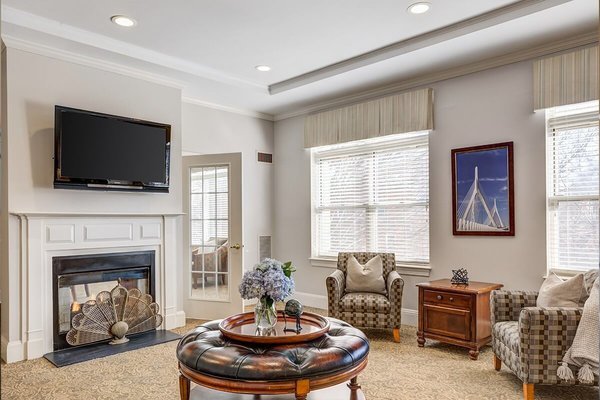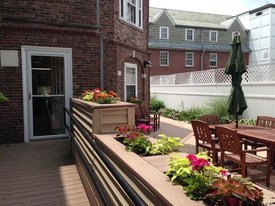In Massachusetts, there are an estimated 6,859,819 residents as of 2017. Of this population, approximately 130,000 people have Alzheimer's disease, and the Alzheimer's Association expects this number to grow to 150,000 by 2025.
Suffolk County, which includes Massachusetts's state capital of Boston, has 807,252 residents, 11.7 percent of whom are 65 or over. To support this population of seniors who may have Alzheimer's or dementia, there are five memory care facilities, two located in Boston, two in Brighton and one in Revere.
In Suffolk County as in the rest of Massachusetts, memory care facilities are officially known as Dementia Special Care Units (DSCUs).
- Suffolk County has a relatively comfortable climate, but since it's located in New England, winters can be difficult for seniors who don't like cold temperatures. The average low in January is about 20 degrees, and the area receives an average of 47 inches of snow each year. Summers, on the other hand, are more comfortable, as the average high in July is 83 degrees.
- The cost of living in Suffolk County is a bit higher than average nationally and above the state average as well. On a cost of living index of 100, where 100 is the national average and includes factors such as utilities, housing and food, the cost of living in Suffolk County is 172.7, above the Massachusetts average of 139.
- Massachusetts is considered to be moderately tax friendly for retirees. It does fully exempt Social Security and public pension income from taxation, but the state taxes other forms of retirement income, including IRAs, 401k accounts and private pensions at the state income tax rate of 5.1 percent.
- Suffolk County is home to world-class medical facilities, including those specializing in brain health and dementia care such as the Neurology Department at Mass General Hospital, in the event of medical emergencies or illness.
Note: Data reported on this page was updated in 2019 and based on the latest 2018 figures.



















